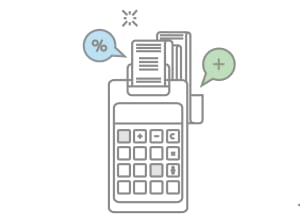From this article, you will learn:
- When does the Ministry of Finance plan to announce the date of implementation of the mandatory KSeF?
- What facilities will be available for businesses when issuing e-invoices in the so-called transition period?
- Are the changes to the KSeF proposed by the Ministry of Finance beneficial for companies?
After the Ministry of Finance postponed the entry into force of the obligatory National e-Invoice System (KSeF) on January 19, 2024, the government started working on the draft changes, while widely consulting their proposals with businesses. What modifications to the regulations can we expect after these consultations and when will the obligation to issue electronic invoices finally arrive in Poland? Here is the current state of legislative work and the expected direction of changes in KSeF.
When will the date of entry into force of the obligatory KSeF be announced?
Let us remind that KSeF is a Polish IT system which main task is to centralize the process of issuing and receiving e-invoices. This will result in, among others, the automation of this process and easier control of documents issued by entrepreneurs.
The system was to become obligatory for most taxpayers from July 2024. However, at the beginning of 2024, the Ministry of Finance unexpectedly announced the detection of critical errors and the postponement of the entry into force of the obligatory KSeF.
Unfortunately, no final dates have been set for the implementation of the obligatory KSeF yet. The Ministry indicated that the dates will be announced at the turn of April and May. The Ministry of Finance's announcements so far suggest that the system will become obligatory in 2025 for all taxpayers. However, it cannot be ruled out that the National e-Invoice System will start operating as early as January next year.
Learn more about tax advisory services
What changes are anticipated in the new project of KSeF?
The changes proposed by the Ministry of Finance can be assessed as meeting the needs of entrepreneurs and liberalizing KSeF.
What exactly are the changes?
- In the so-called transition period, the regulations will allow invoices to be issued in an ‘emergency mode’. Accountants will have to enter the documents prepared this way to the system on the next business day at the latest.
- During the transition period, ‘digitally excluded’ taxpayers will be able to issue paper invoices – provided that the value of a single invoice does not exceed PLN 450 and the total value of all invoices issued in a given month - PLN 10,000.
- It will be possible to issue consumer invoices in KSeF – however, the entrepreneur issuing such an invoice will have to provide the consumer with access to it in the system.
- The issue of adding attachments to e-invoices will be (partially) resolved – the system will allow adding attachments to invoices for utilities and telecommunication services.
- Penalties for failure to comply with KSeF obligations will be deferred.
- The possibility of issuing invoices using cash registers will also be postponed.
As it can be seen, most of the key comments submitted by entrepreneurs have been taken into account. Of course, there remain areas in which the Ministry of Finance could meet taxpayers' demands even more (and, for example, include the possibility of adding attachments to each type of invoice). Nevertheless, the general direction of changes is optimistic.
It is worth noting that changes are also planned in the area of income taxes to additionally secure the correct processing of invoices via KSeF.
According to the proposals, taxpayers will not be able to include costs documented in invoices as tax-deductible costs if such an invoice is not issued in KSeF (despite the existence of such an obligation) and does not contain the buyer's tax identification number.
How can RSM Poland help you when implementing KSeF?
Taxpayers, despite the postponement of the entry into force of the obligatory KSeF, should not abandon work on the implementation of this system in their companies. Our experience shows that the implementation of tools and procedures for issuing e-invoices, especially in the case of foreign entities, is a complex process that goes beyond just tax issues. We encourage you to use the support of RSM experts who will help prepare companies for new regulations and answer all questions related to the implementation of KSeF.
Our bookkeeping, legal advisory and IT consulting offer consists of:
- full outsourcing of bookkeeping and accounting supervision;
- configuration and adjustment of the Oracle accounting system in line with the client’s expectations and in compliance with Polish regulations;
- verification of existing qualified signatures/trusted profiles;
- support in obtaining authorization for KSeF by the employees who will be responsible for sending and receiving e-invoices and correction e-invoices;
- support in obtaining an electronic signature or electronic seal;
- analysis of and advisory on the topic of terms of cooperation with business partners with regard to the obligations and procedures arising from KSeF (e.g. adaptation of contracts with business partners, general terms and conditions of contracts, sales, etc.);
- preparation of internal documents (rules and procedures), including employment documentation, compliant with the new KSeF regulations (e.g. rules governing issuing and adjusting invoices, preparing supplementary information, procedure in case of system failure, etc.);
- identification of compliance risks arising from the Polish Act on Preventing Excessive Delays in Business Transactions and from proceedings conducted by the Polish Office of Competition and Consumer Protection with regard to the implementation of KSeF (e.g. support in the identification of the size of the entity, defining creditor’s rights and debtor’s obligations as regards payment deadlines, etc.).
If you wish to avoid problems with tax authorities, contact our expert and find out how we can help your business.





